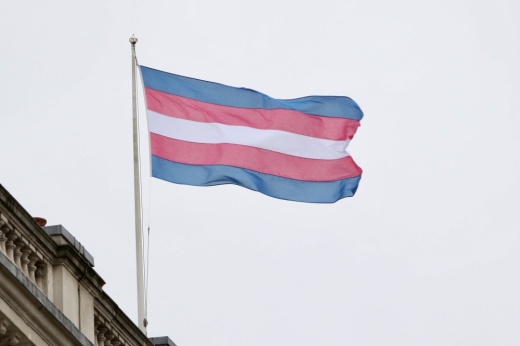Senate Bill 15 would require college students to compete on sports teams based on their sex assigned at birth, regardless of their gender identity. Under the bill, transgender women would not be able to join women’s sports teams, and transgender men would not be able to join men’s sports teams.
The bill applies only to public colleges and universities, meaning private institutions would not have to follow these rules.
Sen. Mayes Middleton, R-Galveston, wrote the bill, and Rep. Valoree Swanson, R-Spring, sponsored it in the House.
SB 15 was approved by the Senate in March and passed out of the House on May 18 with a 95-50 vote. The bill now heads back to the Senate for approval of some small changes.
Gov. Greg Abbott is expected to sign SB 15 into law once it reaches his desk.
In Texas, transgender students are already required to participate in K-12 sports based on their sex assigned at birth. House Bill 25 went into effect in January 2022 after state lawmakers approved it during a 2021 special legislative session.
Swanson said the bill would level the playing field for female athletes.
“We must act now, or men will win men’s sports and men will win women’s sports,” Swanson said. “Senate Bill 15 is about ... making sure that all athletic competitions for women are safe and fair.”
Deemed the “Save Women’s Sports Act,” SB 15 has received significant pushback from Democratic lawmakers and LGBTQ+ activists. During the debate on May 17, Rep. Erin Zweiner, D-Driftwood, raised three points of order, a procedural tactic often used in an attempt to stall or kill bills.
The points of order were withdrawn, but Democrats also proposed a variety of amendments aimed at loosening the bill’s restrictions.
Rep. Venton Jones, D-Dallas, suggested club and intramural sports should not be included in the bill. This would have allowed transgender college students to practice with and play on those teams based on their gender identity.
Rep. Jon Rosenthal, D-Houston, proposed excluding intersex students from the bill to allow athletes whose reproductive or sexual anatomy does not align with the traditional male and female binary to compete based on their gender identity. Rosenthal said intersex students would be “completely cut off” from playing college sports under the bill.
None of the amendments were adopted.
In a news release, Mary Elizabeth Castle, the government relations director for conservative advocacy group Texas Values, praised lawmakers for voting in favor of the bill.
“Today the Texas House guaranteed victory for all female athletes in the state of Texas,” Castle said. “SB 15 makes it clear that college women only play college women as intended by Title IX.”
Title IX protects people from sex-based discrimination in education and includes protections for LGBTQ+ students. On the House floor, Swanson said the bill would not violate Title IX or rules set by the National Collegiate Athletics Association.
However, the NCAA allows transgender students to compete based on their gender identity, as long as they follow certain requirements. Transgender athletes must provide documentation proving they meet specific testosterone levels, which vary by sport.
In response to a question from Rep. Nicole Collier, D-Fort Worth, Swanson said the bill would only apply within Texas. Universities and students would not break state law by competing in other states where similar laws do not exist, she explained.
According to SB Nation publication Outsports, 34 openly transgender athletes have competed in college sports over the past decade. None of these students attended a Texas university while competing.
“All Texas students deserve an equal opportunity to thrive, and that includes being represented in sports according to their gender identity,” said Imelda Mejia, the communications director for progressive advocacy organization Texas Freedom Network, in a statement. “This level of government intrusion into our personal lives is deeply frightening. SB 15 might be a step closer to becoming law, but transgender lives can never be erased.”
Other bills that would impact LGBTQ+ Texans include:
- SB 12 would prohibit minors from attending “sexually oriented performances,” including some drag shows. The House will consider an altered version of the bill on May 19.
- SB 14 would ban transition-related treatments and surgeries for minors. The Senate approved amendments from the House on May 17, and the bill heads to Abbott’s desk next.
- SB 162 would prevent transgender and nonbinary minors from changing their gender on their birth certificates. The bill was referred to the House Public Health Committee in April, but has not been considered in a committee hearing.
- SB 1601 would prohibit public money from going to libraries that host events where drag queens read to children. The bill was referred to the House State Affairs Committee in April, but has not been considered in a committee hearing.





